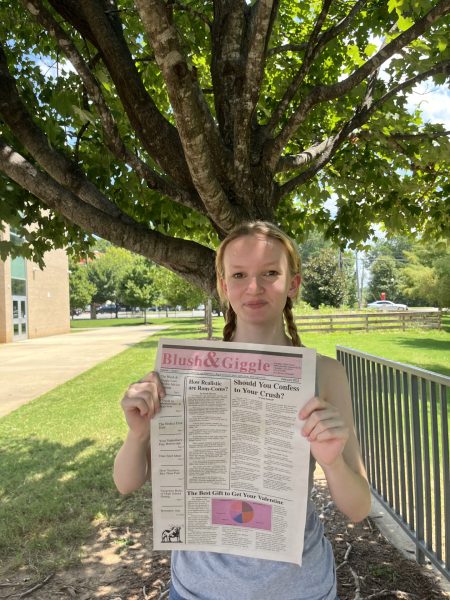Harvard holds perhaps the most prestigious reputation that a university can have: across the world, it’s known for its wealth of resources, the opportunities it provides to its students, and its lauded educational quality. Something equally as important to Harvard’s reputation, although maybe less well-known, is its research staff. Even less well-known is that it’s currently involved in scandal—and that it’s not just Harvard who is being accused of misdoing.
It’s no secret in the scientific world that research fraud is a pervasive, ongoing problem, but it’s often seen as some kind of “monster in the closet”; by any means, it’s not often that scientists will group together to actively accuse a college of tampering with data. But in June of this year, a group called Data Colada did just that, publishing a four-part series titled “Data Falsificada” against a tenured behavioral sciences professor at Harvard, Francesca Gino.
In short, Data Falsificada dealt with a paper on honesty containing two studies that, according to them, used data that had been falsified. The two authors in question, Francesca Gino and Dan Ariely, were identified as the likely perpetrators. Data Colada used a variety of methods to identify discrepancies across both studies: their smoking guns consisted of weird formatting on Excel sheets and data distributions that were almost improbable. Ariely himself admitted such—“I can see why it is tempting to think that I had something to do with creating the data in a fraudulent way,” he told BuzzFeed, “but I didn’t.”
The study has since been retracted, Ariely has blamed the fraud on the insurance company that provided him the data (The Atlantic), and Gino may be the first ever professor from Harvard to lose their tenure (Yahoo Finance).
So why is this such a big deal?
Research is far from a lawless world. From snail-paced journal review processes and what’s supposed to be precise data collection, we as the public generally trust published research not to mislead us. Yet it does. Research fraud often goes unrecognized or unreported despite its severity or however obvious it may be. In the case of Ariely and Gino, Data Colada’s fight against what seemed to be a blatantly faked paper has been going on since 2021. It’s just now producing results. And since then, Gino has launched a $25 million lawsuit against Harvard and the authors of the Data Colada (The Harvard Crimson), where she alleged, among other things, that Harvard’s review of her tenure was a result of gender discrimination.
Perhaps even more important (and more speculative) is what drives researchers to commit research fraud in the first place. Gino and Ariely were not the first and certainly won’t be the last to do so. The fact that research fraud is so prevalent in the first place suggests a more systemic issue, which also suggests an issue that is much harder to solve. Many have suggested that research fraud is a result of the pressure researchers face to present results that are both statistically significant and don’t validate the null hypothesis.
To me, the latter seems much more important: while inflation of statistical size diminishes the validity of research, it’s much less pressing than the documented phenomenon of valid results going unpublished—or being falsified completely—to avoid the null hypothesis. Journals often refuse to publish ‘null’ papers, despite the fact that they’re arguably as valuable as studies that confirm a relationship between variables, and could prevent a large amount of redundancy. In the case of Ariely and Gino, their ongoing scandal could’ve been avoided if it weren’t for these pressures. Especially in relation to career researchers, the difference between financial (and reputational) success and failure can be just a little bit of data editing.
If you think about it, it’s easy to see why something that seems so stupid can become so tempting. Ultimately, Ariely and Gino are just the latest in a long line of scientists who might have made a horrible choice, though most still remain undiscovered. And the road to reducing scientific fraud is still extremely unclear. For now, all we have are ghosts of institutional and systemic issues that may or may not help the scientific world dismantle increasingly problematic trends of fraud. What we can say for sure is that the logic behind the motivations of the scientific world remains hidden; and for scientists like Ariely and Gino, there’s certainly more than one upside to irrationality.




